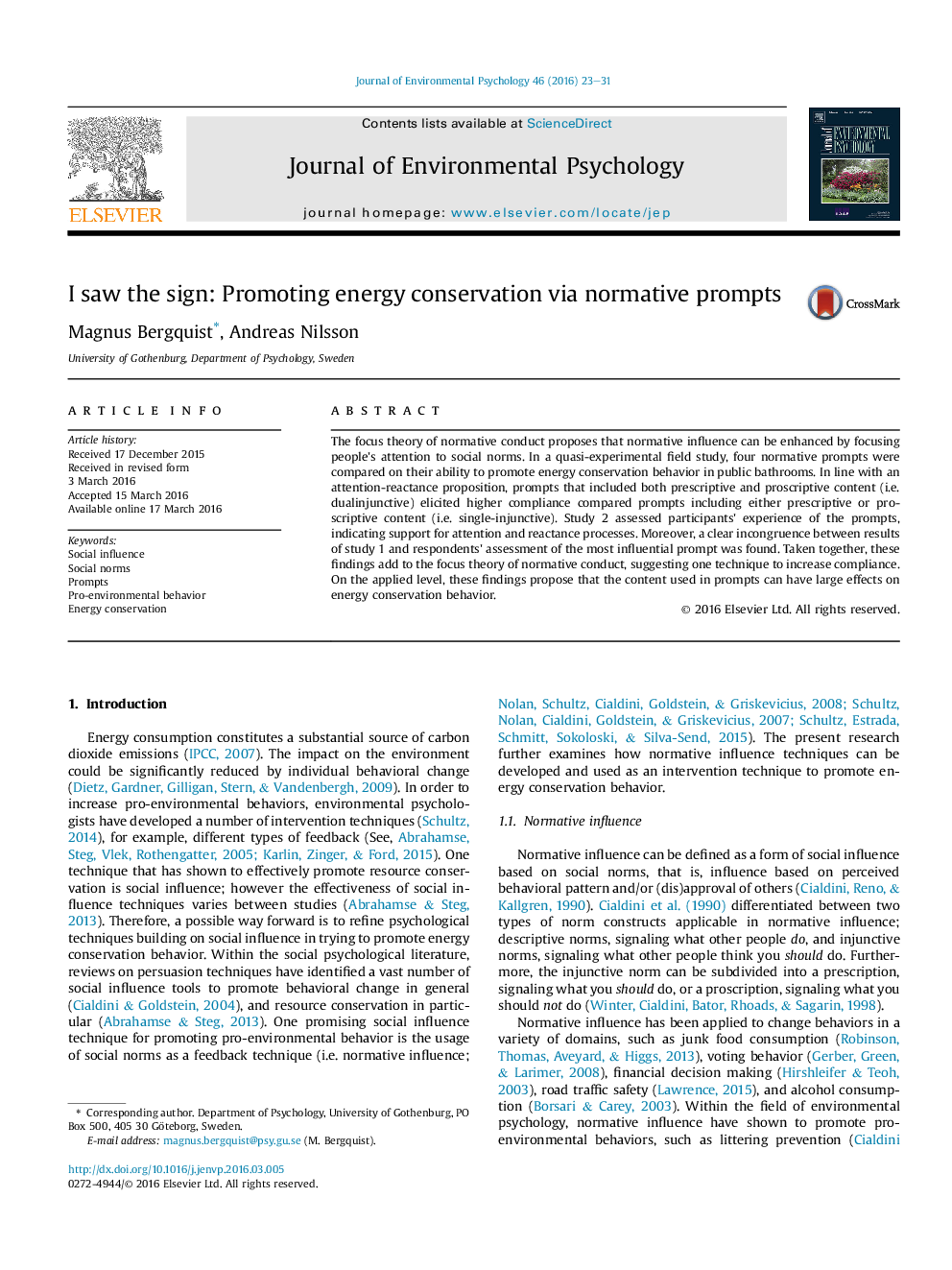| Article ID | Journal | Published Year | Pages | File Type |
|---|---|---|---|---|
| 885568 | Journal of Environmental Psychology | 2016 | 9 Pages |
•Four normative prompts were assessed on their ability to promote energy conservation behavior in public bathrooms.•Energy conservation behavior was highest for the prompts including both prescriptive and proscriptive content.•Study 2 also found incongruence between results of study 1 and respondents' assessment of the most influential prompt.
The focus theory of normative conduct proposes that normative influence can be enhanced by focusing people's attention to social norms. In a quasi-experimental field study, four normative prompts were compared on their ability to promote energy conservation behavior in public bathrooms. In line with an attention-reactance proposition, prompts that included both prescriptive and proscriptive content (i.e. dualinjunctive) elicited higher compliance compared prompts including either prescriptive or proscriptive content (i.e. single-injunctive). Study 2 assessed participants' experience of the prompts, indicating support for attention and reactance processes. Moreover, a clear incongruence between results of study 1 and respondents' assessment of the most influential prompt was found. Taken together, these findings add to the focus theory of normative conduct, suggesting one technique to increase compliance. On the applied level, these findings propose that the content used in prompts can have large effects on energy conservation behavior.
